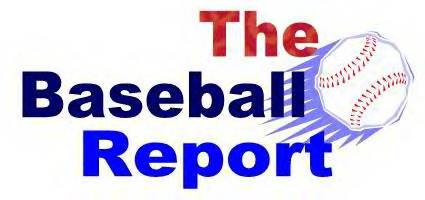

|
Down
On The Farm by Emily Liner From the Gulf Coast to Omaha, the Kansas City Royals have always maintained a deep farm system. Former major leaguers like Bo Jackson, George Brett, Brian McRae and Mark Gubicza, as well as current players such as Johnny Damon, Jeremy Giambi, Kevin Appier and Michael Tucker, just to name a few, all grew up with the Royals' minor league affiliates. Last year Royals' outfielder/designated hitter Mark Quinn made a huge impression. In 135 games, he batted .294 with 20 home runs, 78 RBIs, a .342 on-base percentage, and a .488 slugging percentage. He was honored by the Ted Williams Museum as the AL Rookie of the Year. He came in third for the Baseball Writers' Association of America's AL Rookie of the Year award. The Royals still have terrific players developing in their farm system, especially pitchers. Here is a sneak peek at Kansas City's up-and-comers. Dee Brown drew a lot of attention in the past few years. The swift power-hitting outfielder was chosen as Kansas City's best farmhand in 1998 and 2000 by Baseball America. He was second this year and in 1999. His offensive numbers sunk tremendously in triple-A last year after solid seasons in lower leagues, and he struck out much more often. However, he may get the chance to start in left field in Kauffman Stadium now that Damon is in Oakland. He is on Kansas City's roster as a reserve outfielder this year. Brown's worst trait is his negative attitude. Many managers dislike it. Brown was even suspended after a dispute with his manager in Omaha, John Mizerock, this season. One manager said about Brown, "The only question on him is if someone can get him to play hard all the time. He doesn't play hard, and he's moody." Chris George was selected by BA as the Royals' top prospect this year. Pacific Coast League managers also ranked him fifth out of twenty of the league's best players. He was ranked fifteenth in the entire minor leagues by Baseball Prospectus. He is often compared to Tom Glavine because both are left-handed finesse pitchers. He usually has good command and a smooth delivery, changes speeds well, is hard to run on and rarely gives up home runs. His fastball's velocity has improved, sometimes reaching 96 mph. The 21-year-old southpaw pitched in the 2000 Futures Game in Atlanta over All Star Weekend and brought home a gold medal from the Olympics in Sydney last September. He struggled a bit last year when he reached triple-A, but it will not hold him back much. He will start in Omaha, but he should get called up as the season progresses. Jimmy Gobble is sometimes referred to as a slightly younger version of George. The young pitcher is a 19-year-old left-hander with George's same build and similar velocity. While George has better command, Gobble has better stuff. Once he gets some control over his pitches, especially his curveball, he will progress quickly to the majors. His season will begin in high A ball. Chad Durbin, a right-hander, is quietly making a splash. After a brief stint in the bigs last season, the pitcher spent the rest of the season in Omaha to refine his mechanics. He has a great changeup, a solid curveball, and a fine fastball that is clocked in the low 90s. Managers in the Pacific Coast League ranked him nineteenth in the league. He will go back to triple-A to start the season. Right-handed pitcher Jeff Austin was the fourth overall pick in 1998 after being named BA's College Player of the Year. He also played in last season's Futures Game. This year Austin is the Royals' fifth best prospect on BA's list. He reached triple-A after only 30 pro starts. His hard curve is his best pitch. He pitches in the high 80s and low 90s usually. He has good command; he just needs to learn how to use it. Mike MacDougal, also a righty, was heralded by BA as having "the best stuff in the organization, including the major leagues." He is third on its Royals' Top Ten list. His pitches have so much movement that they are hard for him to control. He has fantastic velocity, sometimes reaching up to 99 mph. His fastball, slider and changeup are all very good, but he has some trouble throwing for strikes all of the time. He has only given up eight homers in 203 pro innings. He will go back to double-A to begin this season. Other pitchers to watch in the Royals' farm are lefty Mike Stodolka and right-handers Kyle Snyder (injured, but still good), Chris Fussell, Shawn Sonnier, Ryan Bukvich, Brian Sanches and Corey Thurman. Some position players to keep an eye on are first baseman Ken Harvey, outfielder Alexis Gomez, shortstop Mark Ellis, and catcher Mike Tonis. However, do not be startled if some of these guys end up in a city other than Kansas City. Small market teams like the Royals usually have to trade away their top players because they are unable to afford them. Just as Damon was traded this winter, some of these players may be traded, too. Small market farm systems do not get enough credit for the super talent they groom. Just ask the Kansas City Royals. |